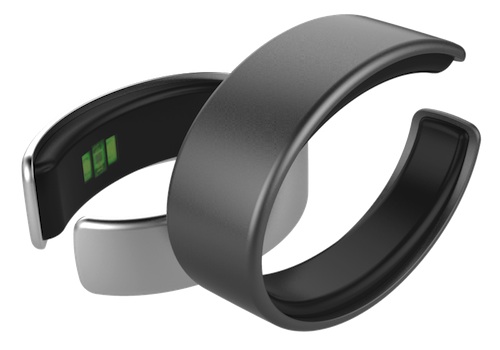 Ontario, Canada-based Airo Health has announced a wearable sensor poised for launch in fall of 2014. Instead of steps, Airo tracks activity using heart rate, and instead of manual entry, Airo tracks nutrition passively.
Ontario, Canada-based Airo Health has announced a wearable sensor poised for launch in fall of 2014. Instead of steps, Airo tracks activity using heart rate, and instead of manual entry, Airo tracks nutrition passively.
Airo's nutrition tracker uses wavelengths of light to look into the bloodstream to detect metabolites, which are released during and after the user's meal. These metabolites will tell the tracker how many calories were consumed during the meal. Co-founder Abhilash Jayakumar told MobiHealthNews that after some internal testing, his team found that Airo is already detecting accurate calorie readings eight times out of ten.
"One morning I had a granola bar," Jayakumar said. "The packaging said 170 calories, but within like 90 minutes Airo sent back it was 162. The exact caloric content of a certain meal is based on how each individual's metabolism works."
As soon as the company has prototypes of Airo, they will send the products out for more testing to researchers to validate the data, Jayakumar said in an email. Airo is already in talks with some researchers in the area.
Even the fitness aspect of Airo was conceived from an attempt to innovate outside of the "activity tracker" space, because "those devices are just digital step counters", Jayakumar said. Instead, Airo tracks activity based on the user's heart rate.
"With the step counting, as much as we prefer our users to have a more active metric of the heart, heart rate and calories burnt, we found that a lot of our users do want step counting capabilities," Jayakumar said. "...When we are looking at all these metrics we can tell when a person is exercising, how intense it is, and at the end of the workout 'are they recovering?' It gives you a really strong idea of someone's fitness level, and for average people heart rate is way more accurate at [determining] calories burnt than step counting."
Jayakumar and the other co-founders, who are all University of Waterloo alums, left college with the hope of solving hypertension and heart disease problems with a pure stress monitor. After some customer feedback, the team learned customers were not interested in a single function device. At that point, they began developing Airo. The companion apps, which will be available on iOS and Android, are still underdeveloped compared to the hardware and electronics, but Jayakumar says they will show four components -- nutrition, sleep, stress and exercise -- to a certain degree.
"Tracking four different areas is just the first step," Jayakumar said. "The market, we believe, is actually the person. The owner of a band who looks at all this data and makes sense of it. But, what we find is more helpful to users is if we can look at patterns, if we can look at habits and find a potential correlation in how to better create hypotheses. So if you give a person a leg up in looking at correlations, you can tell them what to look for specifically. That is a very powerful tool for behavior change."
By the end of the year Jayakumar plans to make a smaller, sleeker form factor for Airo, ensure the reliability of the nutrition tracking function, and shift to mobile over the summer so that the product is ready for launch in the fall of 2014. As for potential competitors, Jayakumar is eyeing a lot of the big names in activity tracking.
"The obvious [competitors] are Fitbit and Jawbone -- once they realize what we are doing, I do expect them to turn around, come up with a similar offering," he said. "It may not be as well-rounded as ours, but they've got the brand to make it feel like it. More than that, I'm concerned about Apple. I definitely think that the iWatch is a health play, Apple has a massive 100 person team working on this in stealth and it's not very Apple-esque to come up with a watch as an extension of your phone on your wrist."
The company is currently bootstrapping the product with an $81,400 ($85,000 Canadian) grant from the Canadian federal government and University of Waterloo, which, Jayakumar said, has developed an interest in funding hardware startups after BlackBerry co-founder Mike Lazaridis began supporting the Institute of Quantum Computing, hoping to make Waterloo, Ontario the next Silicon Valley.
Eventually, Jayakumar thinks Airo will be a tool to help users change their behavior over time because of the technology's learning capabilities.
"We can make recommendations and monitor whether people improve or not, and if they do, we can monitor how successful they are and our recommendation starts getting smarter based on what people do and how their body behaves," Jayakumar said. "You spend more time with Airo, it learns you, and it tries to give you little pieces of tidbits and advice that are very specific to you that get developed because it knows you over time."
















